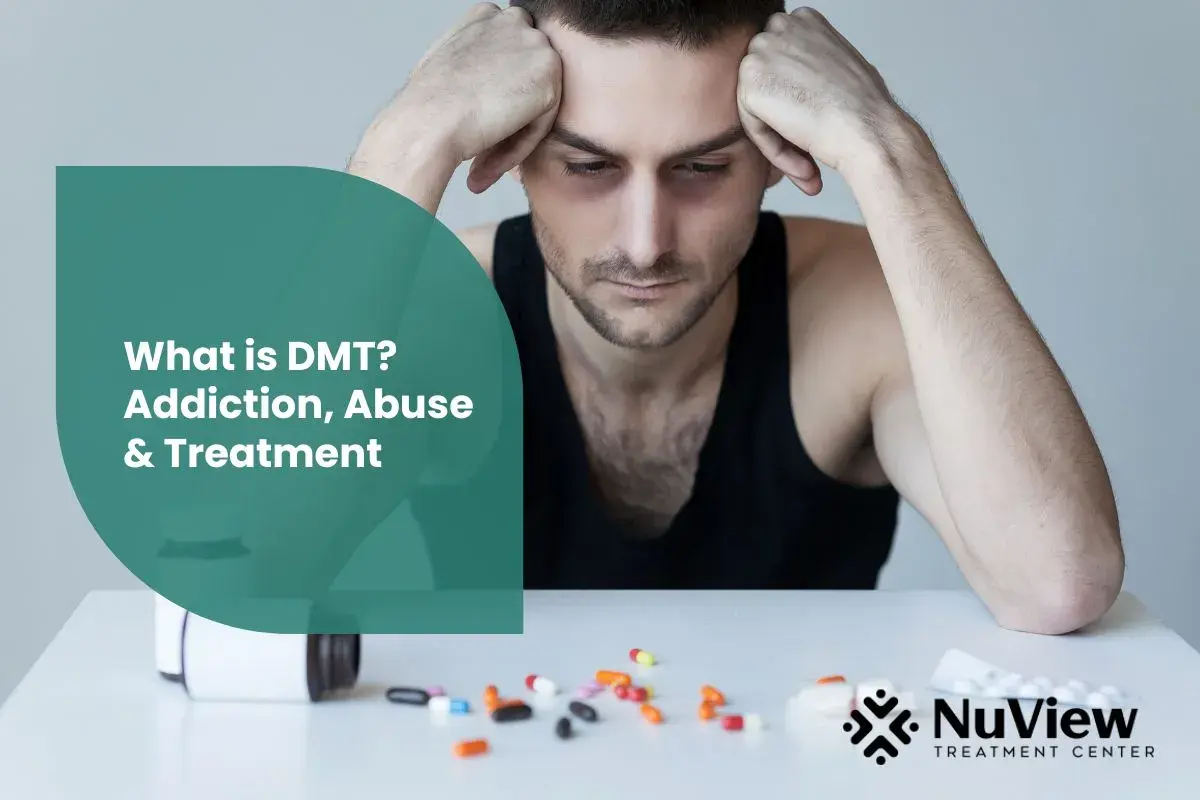Zomorph: Side-Effects & Dangers
Morphine is a powerful prescription opioid used to treat moderate to severe pain. It comes in several formulations, one of them being Zomorph. Zomorph is a modified-release version of morphine; it is the only modified-release formulation of Morphine Sulphate. While effective, Zomorph has a high potential for misuse and dependence.
This article explains what Zomorph is, its potential side effects, and the different treatment options for misuse and dependence.
What is Zomorph?
Morphine is a highly potent opioid, which typically comes in capsules known as Zomorph. It is a modified-release or a long-acting version of morphine, where it is slowly released into the body to relieve symptoms like pain, cough, or breathlessness. It lasts for 12 hours in the body, therefore, it is given in the evening to maintain stable levels of the medicine in the body.
Typically, Zomorph can be taken as a capsule. The capsule can also be mixed with semi-solid foods, or it can be administered directly into the stomach via a gastric/gastrostomy tube. For example, a syringe can be used to administer the medicine via a feeding or an enteral tube. However, the capsule must not be chewed or crushed.
What Is Zomorph Used For?
Zomorph is generally prescribed for:
- Managing post-surgical pain
- Treating cancer-related pain
- Relieving pain from serious injuries
- Controlling chronic severe pain
- Providing palliative care for those with terminal illnesses
- It is also used to treat a cough or breathlessness.
Get Started With Nuview Treatment Center
Our dedicated professional staff is here to guide you or your loved one on the journey to lasting recovery, offering support every step of the way.
Zomorph Side-Effects
Zomorph, while effective, does come with many unwanted or side effects. Some of the common Zomorph side effects are:
- Sleepiness
- Drowsiness
- Dry mouth
- Vomiting
- Constipation
- Headaches
- Dizziness/vertigo
- Muscle stiffness
- Low blood pressure
- Tolerance, dependence, and addiction.
Some rarer, more severe Zomorph side effects are:
- Changes in mood
- Psychotic symptoms, like hallucinations
- Increased sensitivity to pain
- Reduced size of eye pupils
- Pancreatitis (inflammation of the pancreas)
- Irregular heart rate (too slow or too fast)
- Reduced sexual drive or even impotence.
If you or someone you know is experiencing any of these side effects while on Zomorph, contact your doctor or nearby healthcare providers immediately.
Zomorph Addiction
Because Zomorph contains morphine, it carries a high risk of addiction. Signs of Zomorph addiction include:
- Changes in mood and behavior
- Agitation
- Denial
- Sleep difficulties
- Changes in body weight
- Impaired coordination
- Bloodshot eyes
- Dilated or enlarged pupils
- Lack of self-care.
Zomorph addiction also leads to tolerance. Tolerance is when the body needs more and more doses of Zomorph to experience the same effects.
Moreover, Zomorph addiction can also lead to withdrawal symptoms if it is stopped abruptly.
Get Started With Nuview Treatment Center
Zomorph Withdrawal
Zomorph addiction can lead to withdrawal symptoms. Withdrawal symptoms are intensely unpleasant and can include:
- Cravings
- Irritability
- Anxiety
- Agitation
- Low mood
- Memory troubles
- Teary eyes
- Runny nose
- Yawning
- Sweating
- Vomiting
- Diarrhea
- Headaches
- Abdominal pain
- Tremors.
As Zomorph contains morphine, withdrawal symptoms can begin very quickly after the last dose, within 8-24 hours. While the physical symptoms begin to subside within 3-5 days, the psychological symptoms last longer. Withdrawal symptoms are very unpleasant and can make quitting Zomorph difficult.
So, the best way to treat Zomorph withdrawal symptoms is with medically supervised detoxification (detox). In detox, the amount of Zomorph in the body is tapered off gradually so as to minimize and manage withdrawal symptoms.
What Happens if You Overdose on Zomorph?
Zomorph has a potential for misuse, addiction, and dependence, and can, therefore, lead to overdose. Zomorph overdose can be life-threatening. Common Zomorph overdose symptoms are:
- Constricted pupils
- Breathing difficulties
- Drowsiness and feeling sleepy
- A fall in body temperature
- Coma.
In case of Zomorph overdose, call the nearby healthcare providers or emergency providers (like 9-1-1 in the U.S.) immediately.
How Is Zomorph Addiction Treated?
Quitting Zomorph abruptly or going “cold turkey” can be detrimental in that it can lead to significant risks and increase the risk of relapse. Therefore, Zomorph addiction must be treated in a medical setting.
While treatment can typically begin with medically supervised detoxification (detox), where Zomorph levels are gradually tapered off from the body to minimize and manage cravings and withdrawal symptoms. However, detox does not treat the underlying reasons leading to Zomorph addiction in the first place. Therefore, the most effective treatment is medication-assisted treatment (MAT), where a combination of medication management and psychotherapy is used to overcome the substance use disorder.
Medication management involves medications like methadone, buprenorphine, and naltrexone. Psychotherapy involves a combination of interventions, such as:
- Motivational Interviewing - In motivational interviewing, motivation is instilled from within to take steps toward healing and recovery from Zomorph addiction.
- Cognitive Behavioral Therapy - Cognitive behavioral therapy focuses on changing maladaptive thinking and emotional and behavioral patterns that underlie Zomorph misuse. It seeks to change them and equip the person with healthy coping skills.
- Contingency Management - Contingency management involves the use of rewards and reinforcements to strengthen desirable behaviors, like abstaining from Zomorph.
Recovery, however, is not limited to treatment alone. It is ongoing. Therefore, ongoing care involving counseling and relapse prevention, 12-step recovery programs, support groups like Narcotics Anonymous, and community resources is also made available.
What Makes NuView’s Approach to Zomorph Addiction Unique?
The NuView Treatment Center offers comprehensive outpatient care for Zomorph addiction with partial hospitalization programs (PHP) and intensive outpatient programs (IOP), tailored to you or your loved one’s unique recovery needs. We offer evidence-based MAT programs and holistic therapies tailored to your unique needs and recovery goals, as we believe in making behavioral health care as relevant as it is effective.
At NuView, we believe in making behavioral health care easy for everyone, so we offer evening programs so you do not have to put your life on hold to focus on your recovery anymore. We also offer personalized internet-based care or telehealth services to ensure that even those living in remote and underserved areas receive the care they deserve.
If you wish to speak to an informed expert regarding our Zomorph addiction treatments, reach out to NuView today! Call us at (323) 307-7997 or email us at info@nuviewtreatment.com.
- Zomorph: Side-Effects & Dangers
- What is Zomorph?
- What Is Zomorph Used For?
- Zomorph Side-Effects
- Zomorph Addiction
- Zomorph Withdrawal
- What Happens if You Overdose on Zomorph?
- How Is Zomorph Addiction Treated?
- What Makes NuView’s Approach to Zomorph Addiction Unique?
- Zomorph: Side-Effects & Dangers
- What is Zomorph?
- What Is Zomorph Used For?
- Zomorph Side-Effects
- Zomorph Addiction
- Zomorph Withdrawal
- What Happens if You Overdose on Zomorph?
- How Is Zomorph Addiction Treated?
- What Makes NuView’s Approach to Zomorph Addiction Unique?
Get Help Today!
Murphy PB, Bechmann S, Barrett MJ. Morphine. [Updated 2022 Jun 20]. In: StatPearls [Internet]. Treasure Island (FL): StatPearls Publishing; 2022 Jan-. Available from: https://www.ncbi.nlm.nih.gov/books/NBK526115/
Balch RJ, Trescot A. Extended-release morphine sulfate in treatment of severe acute and chronic pain. J Pain Res. 2010 Sep 21;3:191-200. doi: 10.2147/JPR.S6529. PMID: 21197323; PMCID: PMC3004644.
Wang Y, Yang H, Shen C, Luo J. Morphine and pregabalin in the treatment of neuropathic pain. Exp Ther Med. 2017 Apr;13(4):1393-1397. doi: 10.3892/etm.2017.4102. Epub 2017 Feb 7. PMID: 28413483; PMCID: PMC5377382.
Everyone is Welcome Here and We All Have Your Back
Your healing journey deserves a personalized approach. At NuView, we integrate expertise in behavioral therapy, mental health, and substance use treatment to create a customized recovery plan tailored to your unique needs.
Connect with our Admissions Specialists today.







Written By
Dr. Ryan Peterson